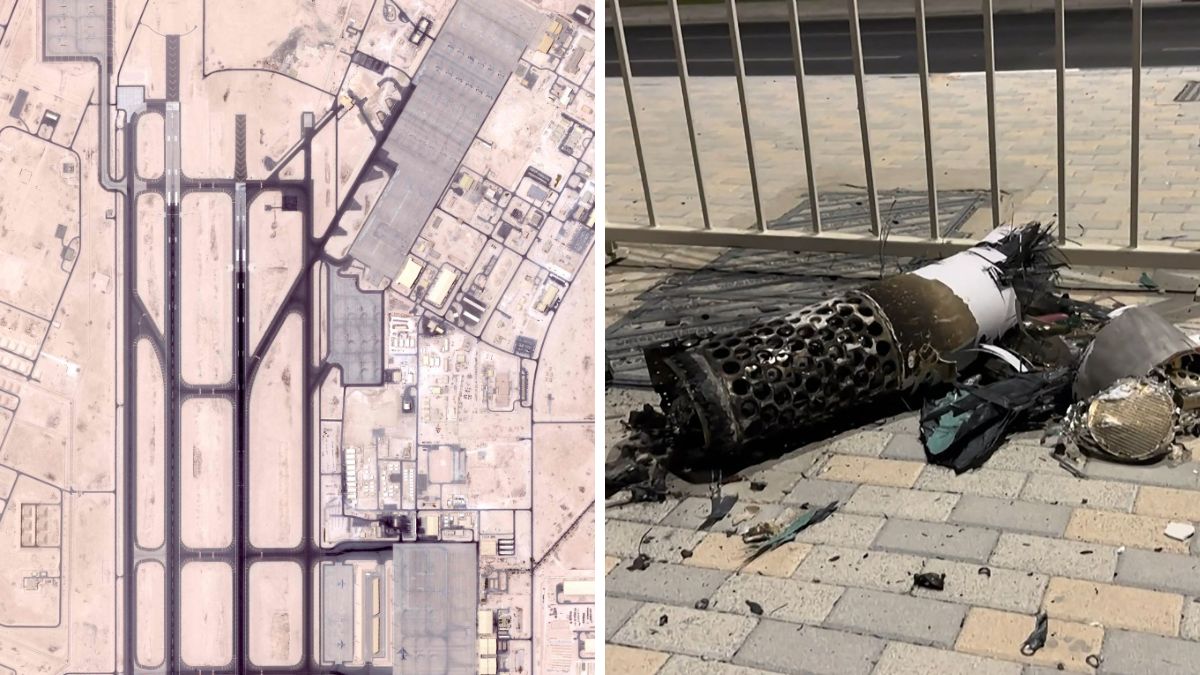'Not at our expense': Why Gulf nations aren't thrilled about Iran's 'performance' during the 12-day war
 Satellite photo from Planet Labs PBC on June 19, 2025, shows no more planes at the US military base of Al-Udeid in Qatar, which was targetted by Iran. (Right) AFPTV footage shows the remnants of an Iranian missile intercepted over Qatar, as it lies on a pavement near a fence | AFP
Satellite photo from Planet Labs PBC on June 19, 2025, shows no more planes at the US military base of Al-Udeid in Qatar, which was targetted by Iran. (Right) AFPTV footage shows the remnants of an Iranian missile intercepted over Qatar, as it lies on a pavement near a fence | AFP
On June 23, Iranian ballistic missiles struck the US airbase Al Udeid in Qatar, a retaliation for the US bombing of Iran's three nuclear sites. The well-choreographed attack was calibrated and the US-backed Qatari air defences did their job well, striking down all missiles except for one.
While there were no casualties, the damage the attack did to the stability of the Gulf countries was immense.
For the Gulf nations, the attack was not just a reminder of how dependent they were on the US safety net but it also shattered the perception of being havens of stability and engines of commerce and finance in an unstable region.
Though the response from Qatar and other Gulf countries was limited to a statement - Qatar said it was reserving the right to defend - the anger was palpable, according to analysts.
"The Iranian attack on Al Udeid Airbase was seen in a negative light by the Gulf countries. Although it was just a performance for local consumption in Iran, the Gulf doesn't want the Iranians to perform at their expense," Saudi political analyst Ali Shihabi told UAE-based The National.
"Gulf states were very clearly irritated and wanted to send Iran a strong message that this sort of performance is unacceptable. That said, I believe both the Gulf countries and Iran remain committed to maintaining civilised ties, and that engagement will continue," he said.
Despite this, the Gulf nations are realising that Iran's ambitious nuclear programme, and whether Israel and the US would continue to target it, will be a major threat for them.
Iran is, however, on a damage control mode.
Iranian President Masoud Pezeshkian held a phone conversation on Tuesday with Saudi Crown Prince Mohammed bin Salman and United Arab Emirates President Sheikh Mohammed bin Zayed Al Nahyan, to reiterate that Iran’s missile strike on the U.S. base in Qatar came in direct response to Washington’s military role in the attack on Iranian territory.
Iran continues to believe that the attack was not intended to damage its relationship with the Gulf countries. "Fortunately, our relations with our neighbours in the southern … Gulf were not affected by this attack,” a Tehran-based analyst close to the Iranian government told The National.
He added that Iran had kept Qatar in the loop and was convinced that the attack was not at territory and sovereignty of Qatari soil.
Middle East